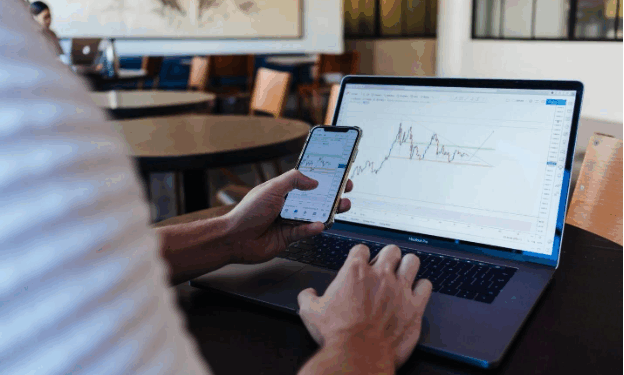The Nigerian financial market never sleeps.
Between the morning auction that sets the naira reference rate and late evening reports from crude oil terminals, price-sensitive news can break at any moment.
That non-stop flow once forced traders to sit in front of multiple screens all day, refreshing charts and news feeds.
Now, artificial intelligence does much of the vigilance for them, scanning thousands of data points and sending an instant notification the second a meaningful shift is detected.
A growing number of retail investors, therefore, begin their journey by downloading a trading app in Nigeria that blends AI-powered alerts with local market access. The convenience of carrying a personal dealing desk in one’s pocket is obvious, yet the true edge lies in the quality and speed of the alerts delivered when volatility strikes.
Why AI Alerts Matter in the Nigerian Context
Liquidity in Nigerian equities and foreign exchange can change suddenly. Corporate actions on bellwether stocks such as MTN Nigeria or Dangote Cement, Central Bank circulars on domiciliary accounts, or updated OPEC quotas all ripple through prices within minutes. Human reaction time is rarely fast enough, especially when most retail traders have day jobs away from a Bloomberg terminal.
An AI engine trained on historical price reactions, social sentiment and macro-economic releases can flag the same information in real time and with context. That context—whether the move is abnormal relative to average daily range or whether similar news sparked a five per cent rally in the past—helps the user decide if an entry or exit is justified. Leading platforms like the HFM App even let users set ‘smart’ alerts calibrated to personal risk thresholds, adding a layer of customisation beyond simple price pings.
How the Algorithms Work Behind the Scenes
Although each provider guards its secret sauce, most AI alert engines follow a similar structure:
- Data capture from live price feeds, economic calendars, social media sentiment and curated news wires
- Pattern recognition using machine learning models trained on several years of local and global market data
- Signal scoring in which each potential alert is graded for statistical significance and probable price impact
- Delivery optimisation that decides whether to push a phone notification, an email, or an in-app pop-up based on user behaviour
Because the models refresh themselves every few hours, they adapt to changing market structure— for example, the tighter spreads on NGX30 futures since the adoption of the new settlement system in 2024.
Key Criteria for Assessing Alert Quality
Speed alone does not equate to profitability. Nigerian traders evaluating a new platform should examine:
- Latency from event to alert: Anything above two seconds during normal liquidity may be too slow for fast-rising pairs like USDNGN.
- Relevance filtering: Does the engine avoid spamming minor wiggles that trigger ‘false positives’?
- Back-testing transparency: Reputable brokers publish hit-rate statistics so clients can compare expected versus actual outcomes.
- Customisability: The best tools let you define technical or fundamental conditions in naira or kobo rather than forcing generic global presets.
- Local server presence: Hosting within West Africa shortens data paths and reduces the chance of delays caused by submarine cable outages between Lagos and London.
Local Data Sources That Power the Alerts
Unlike Wall Street, reliable Nigerian market data is not always consolidated in one place. The strongest AI systems, therefore, combine:
- Tick-by-tick quotes from the Nigerian Exchange Group
- Central Bank of Nigeria press feeds and Treasury bill auction results
- High-frequency naira liquidity snapshots from interbank brokers
- Social chatter on X (formerly Twitter) filtered to Nigerian analyst handles
- Satellite imagery that tracks pipeline flows from the Niger Delta to Bonny Island
Integrating these niche inputs is vital because Nigerian prices often move on headlines that never reach global news desks until hours later.
Regulatory and Infrastructure Considerations
The Securities and Exchange Commission of Nigeria has warned investors about unlicensed offshore bots that promise unrealistic returns.
Traders should confirm that any AI alert provider operates under a recognised license and that personal data stays on encrypted servers located within the jurisdictional reach of Nigerian privacy law. Mobile network reliability also matters; without 4G reception, an alert may arrive after the move is over. A dual-SIM phone plus Wi-Fi back-up can mitigate that risk.
Measuring Success After Adoption
Install the app, enable a demo account, and track trades for at least one month before going live with cash. Compare your own entry price to the price available at the moment the alert fired; the difference is slippage. Successful AI alerts should improve average entry precision and cut reaction time by more than half.
Many traders also notice psychological benefits: reduced fear of missing out, better adherence to stop losses, and freedom to focus on strategy rather than constant monitoring.
The Road Ahead
Nigerian fintech hubs in Lagos and Abuja are already experimenting with large language models that can parse National Assembly bills or NNPC production updates within seconds of publication and translate them into directional alerts.
As fibre connectivity expands and brokerage competition intensifies, expect even greater accuracy and localisation. Eventually, every retail investor in the country may rely on a pocket AI analyst that whispers opportunities long before they trend on social media.
Conclusion
AI-driven alerts have moved from luxury to necessity for active Nigerian traders. By selecting a trusted platform, verifying regulatory standing, and testing alert performance against personal goals, investors can turn technology into a genuine edge.
In a market where seconds matter and information asymmetry is wide, the trader who hears first is often the trader who profits most.








